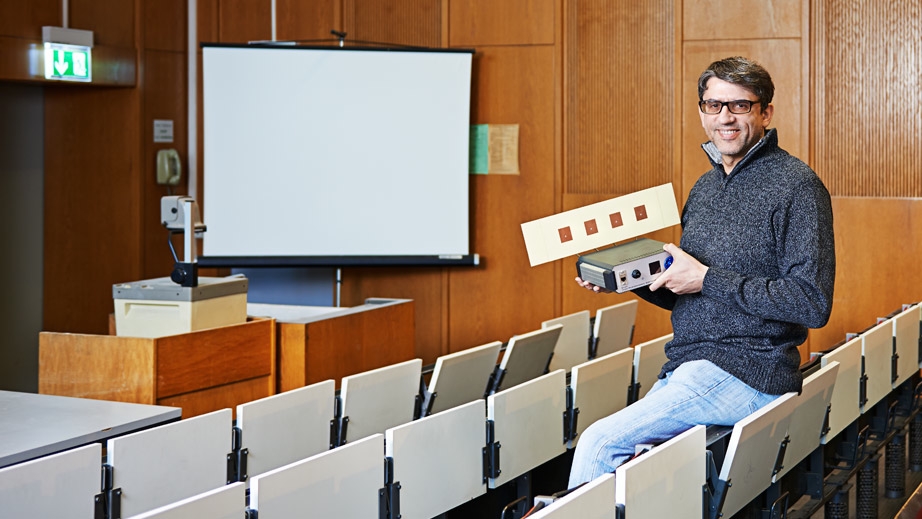
Brain City Berlin Ambassador: Prof. Dr. Giuseppe Caire (Technische Universität Berlin)
„Alexander von Humboldt-Professor“; CommIT – The Communications and Information Theory Group
He is one of the world's leading researchers in communications technology and has laid the groundwork to ensure that the next generation of antennas for smartphones and mobile phone stations is able to offer extremely efficient data transfer. Guiseppe Caire, an Italian native and now professor of electrical engineering and computer science at the Technische Universität Berlin and partner to the Heinrich Hertz Institute, explains why Berlin is the ideal place for his work.
How do you bring together your theoretical research at the university with its practical application at the Heinrich Hertz Institute?
In my field, there's not really that much difference between theoretical research and practical application. Theory and practice are actually very closely related. That's also what I tell my students when they complain about the courses being too math heavy and that they'd like to see actual applications instead. I tell them that the algorithms we work with are already influencing the next generation of smartphones.
How much progress have you made in developing the next generation of smartphones?
Right now we're in the preliminary stages, so it's possible they may end up being applied in three or four years’ time. People want to be able to stream videos and receive more data and that’s why we are currently working on preparing the fifth generation. The use of so-called multi-antenna systems provides a way of processing large amounts of data.
How important is this in the development of the technology?
It's basically an example of something that began as a theory and is now on the way to becoming a fundamental part of the next generation of mobile communications. At the start, it all looked very theoretical, because it required extremely careful calibration of the antennas since that was the only way to produce signals that wouldn't interfere with each other. After more than ten years, these ideas evolved into new possibilities. And in six months, we hope to have our first prototype.
What is your impression of the scientific community in Berlin?
The city has several centers of excellence. There are many top-rate people working here, especially in my field, and I'm in close contact with other professors in Berlin, especially in the area of information and communications. The city has a sort of local tradition in applied mathematics.
What would you tell a colleague who's thinking about moving to Berlin and asks you for your opinion?
I would definitely recommend them to come here. For those who are just starting their careers and also want to enjoy life outside of work, Berlin is the perfect place to be. There are plenty of places around the world that provide excellent environments for scientific work, but what’s often hard to find is the right balance between one's professional and personal life. What's more, the logistics here in Berlin are excellent, in terms of lab space, for instance. I have an entire floor all to myself and can bring my students along with me whenever I want. It was easy to create a beautiful teaching space for us here. By contrast, in other leading centers of science and research it’s often hard just finding a few square centimeters of space to work in.